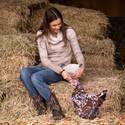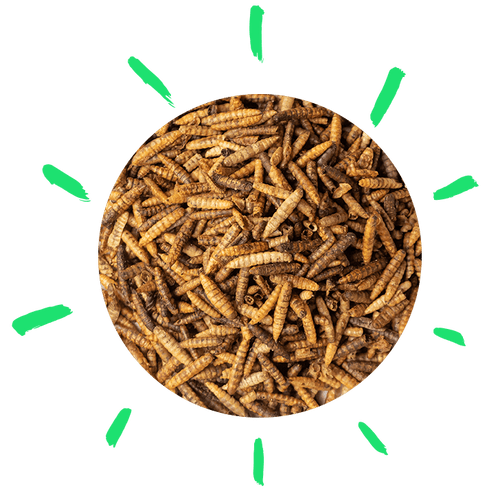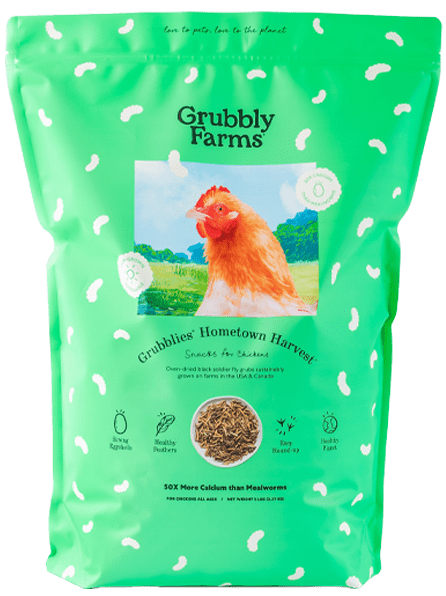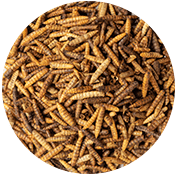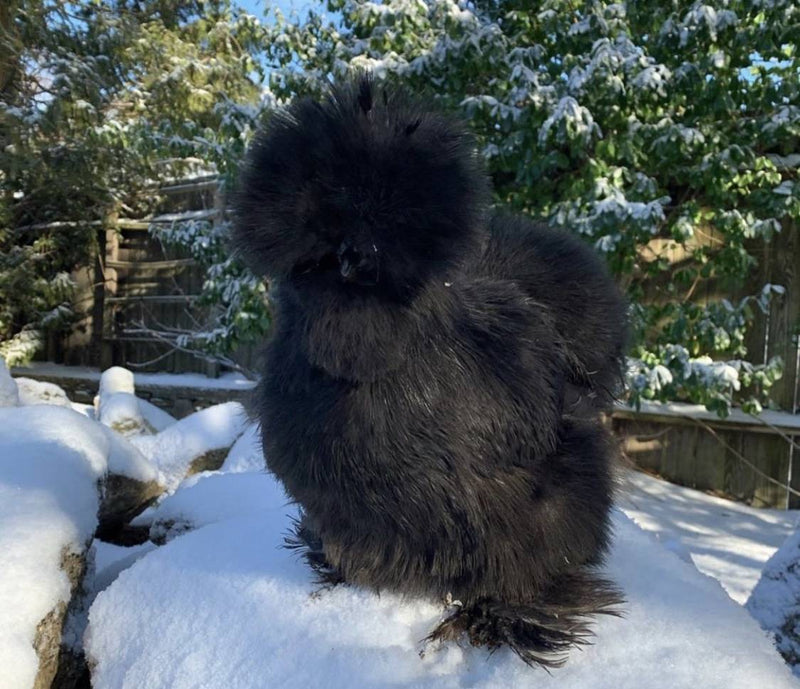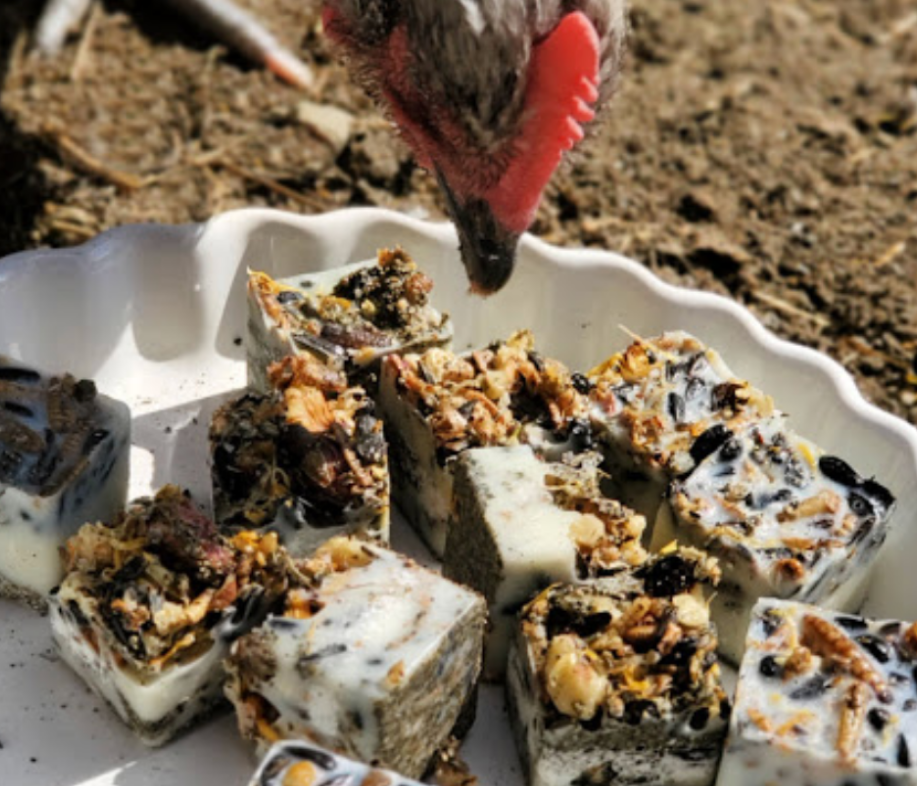One of the most common ailments that northern backyard flocks have to deal with during the winter is frostbite. Frostbite can range from minor discomfort to a life-threatening issue... And unfortunately, outfitting each of your flock members in snow shoes and knit hats isn't the solution. Luckily, there are several things we, as backyard chicken keepers, can do to help prevent frostbite from becoming an issue this winter in our chickens.
With this article, you learn how to prevent your chickens from frostbite and other tips and tricks to keep your flock healthy and warm all winter-long.
What Causes Frostbite in Chickens?

Preventing frostbite starts first with knowing what causes frostbite. There are two main factors that cause frostbite: moisture and reduced blood circulation.
How Moisture Promotes Frostbite
Moisture is your flock’s enemy during the winter. It hangs in the air causing high humidity levels, making it hard for your flock to stay warm. It can also collects on the parts of their body where skin is exposed, such as the combs, wattles, legs, and toes.
When moisture gathers on the skin and freezes, blood cannot freely flow to those appendages. This starves the cells of oxygen and warmth, and begin to freeze. This is freezing is frostbite.
How Blood Circulation Causes Frostbite
The same effect happens when a chicken experiences reduced circulation. Reduced circulation is usually caused by cold stress. 3To conserve energy, a chicken will reduce circulation to the parts of its body that help it stay cool during the summer, like the the comb and wattles. Once circulation is restricted, those body parts are more prone to freezing and experiencing frostbite. The two main things you should do to prevent frostbite are reduce moisture exposure and encourage good circulation.
How Serious is Frostbite for Chickens?
Frostbite can range from causing serious health issues and even death, to minor cases that cause pain and discomfort. Either way, frostbite is something that should be prevented since it causes both stress and pain to the chicken affected.
How to Prevent Frostbite in Chickens
Understanding the causes of frostbite is half the battle--the other half is proactively preventing frostbite before is becomes a problem. Here are some straightforward ways to prevent your chickens from turning into Frosty-the-Snow-Hen.
1. Promote Good Circulation in Your Chickens
Chickens that have good circulation will be less likely to get frostbite since blood is flowing to all parts of their body, bringing warmth and oxygen to the cells. While you can’t necessarily ‘make’ a chicken have good circulation, there are things you can do to promote good circulation.
Keep Them Moving

One way to encourage good circulation is to get your flock moving and keep them entertained. Movement triggers blood flow and will promote circulation to all parts of the body.
Movement during the winter also uses up energy, something that is in high demand for the added need of staying warm. So, when you encourage movement and activity within your flock, make sure you are providing an extra source of energy at the same time.
How to Encourage Better Blood Circulation in Chickens
Use a healthy snack like black soldier fly grubs to get your girls on their feet and foraging. When you scatter their grubs on the ground, they'll scratch and peck, foraging for their snacks and building body heat.
Other Ways to Boost Circulation
Here are a few other safe ways to promote good blood flow and circulation in your flock this winter:
- Include interactive elements in their enclosure, such as swings, unique perches, tunnels, balance beams, and ramps
- On cold mornings and nights, serve them a warm snack like raw oats sprinkled with some ground ginger
Utilize Natural Blood Circulation Boosters
Another way to promote good circulation is to incorporate circulation stimulating supplements into your flock’s diet. Certain supplements make the body respond in such a way that trigger circulation and encourages proper blood flow.
Some popular herbal supplements include
- Ground ginger root
- Cayenne pepper
- Parsley
Of the three supplements, parsley can be used the most frequently since it is a mild herb that also provides many other good health benefits. Ginger root is a stronger herb that should be used in moderation and offered during times when circulation may be suppressed. Cayenne pepper should be used with most caution since it is a very potent herb, and since chickens can’t taste spicy things, they are prone to over-consuming cayenne pepper.
2. Reduce Water Surface Area
Water leads to moisture--which leads to a higher risk of frostbite. By reducing how much water can evaporate within the coop, you can decrease the amount of moisture in the air. In other words, dry coop air prevents frostbite by limiting any moisture that could gather on the chickens’ combs and wattles.
How to Reduce Moisture & Humidity in the Coop
The main source of water surface area in the coop will be waterers, including bell waters, troughs, bowls, and other open-water systems. Additionally, make sure you clean up any water spills and prevent damp litter within the coop. While it’s important that your flock have an easy to access source of water during the winter, it's also important to reduce moisture content in the coop to keep them healthy. There are several solutions to remedy this dilemma.
Switch to a Closed Water System

First, you can invest in a closed water system, such as poultry nipples. Poultry nipples can be mounted to PVC pipes or buckets, which can then be covered to reduce water surface area.
There are two common problems with closed-water systems, though. One is that you have to be very careful that the system doesn’t leak. Constant dripping or an accumulation of drips will make for damp, moist bedding which just adds to the moisture problem instead of solving it. Hemp bedding is great for this.
Also, closed-water systems can be hard to keep from freezing during the winter. So, if a closed-water system doesn’t sound like your cup of tea, there is another option.
Relocate the Water Outside of the Coop
Your other option is to move your flock’s water source outside to their enclosure. This will remove the water surface area from the coop but will still provide water for your flock.
One challenge you may encounter is how to keep their water from freezing. However, electric pet bowls, heated bases, and other systems can all be rigged up in the enclosure to easily keep the water from freezing.
3. Clean Up Droppings
Fresh chicken manure has a moisture content of around 75%, which may vary depending on the type of dropping. However, all that moisture doesn’t stay with the poop. In fact, about 35-55% of that moisture evaporates into the air. So, it’s pretty safe to say that chicken poop can account for a lot of the moisture in the chicken coop air!
Managing Chicken Poop in the Coop for Drier Air
To keep moisture evaporation from chicken poop to a minimum, have a good droppings management system in place such as removing the droppings every morning or stimulating the composting process by using a deep litter method in the coop. There are two ways you can manage the droppings to reduce moisture evaporation: remove the droppings or absorb the moisture.
Removing Droppings
For removing droppings, a droppings board or sling below the roosts can make cleaning up nightly droppings super easy in the morning. If you have a litter that does not compost droppings, you will have to clean up any droppings in the litter as well. A kitty litter scoop works well for sifting out droppings from the litter.
Absorbing Moisture from Droppings
To absorb moisture from droppings, you have to choose a litter that is not only absorbent, but also promotes the composting of the droppings. If the litter is just absorbent, it will eventually become too saturated and add to the moisture problem instead of preventing moisture in the coop. When the litter both absorbs moisture and composts the droppings, the composting process uses up the moisture to create a healthy compost.
4. Ensure Good Ventilation

Good ventilation is also essential to having dry, non-humid air within the coop. You can remove all the water surface areas and keep droppings to a minimum but still have high moisture content in the air. Where is that moisture coming from then?
The answer is your flock. When chickens respirate (aka breath), they exhale moisture. To take care of this moisture, you must have good ventilation in the coop.
Moisture-laden air is also warm air, so it naturally rises to the top of the coop. If you have good ventilation in your coop, the warm, moisture-laden air can escape and be replaced with fresh air. Having good ventilation will help keep the coop smelling good and promote dry air within the coop. Dry air makes it easier for chickens to stay warm and prevents your chickens from getting frostbite.
Adding Winter-Safe Ventilation to Your Chicken Coop
Ventilation encourages air exchange. Old, moisture-laden air should be exchanged with fresh, oxygen-laden air. This exchange often occurs near the roof of the coop.
Promoting good ventilation can be as simple as having small, hardware cloth covered openings near the top of the coop or having windows that can be opened and closed. Be sure these openings are under an eaves to prevent snow from blowing in.
5. Prevent Cold Stress
Another way you can prevent frostbite during the winter is by also preventing cold stress. Cold stress is the stress a chicken experiences when colder temperatures require the body to expend more energy to stay warm. Not all cold stress is bad, and healthy chickens can handle spells of minor cold stress just fine. However, cold stress can lead to frostbite when the body starts restricting circulation to conserve energy.
Here are a few things you can do to prevent cold stress in your flock this winter:
- Winterize your coop and enclosure to reduce exposure to the weather
- Use the deep litter method which generates some natural heat
- Increase the protein in your flock’s diet
6. Reduce Exposure to the Elements

Not only does exposure to the weather and climate elements cause cold stress, but it can also speed up the process of frostbite. A cold wind or moisture from precipitation can encourage frostbite to set in. Wind chill can make temperatures drop even lower and will cause moisture to freeze faster, which is bad when moisture is gathered on a chicken’s skin. Not being able to get away from blowing snow or icy rain will also increase the chances of frostbite.
One often overlooked source of exposure is the floor of the enclosure. If the litter in the enclosure is not insulating, the ground will get very cold which can cause frostbite on the toes.
In addition to litter, proper bedding, such as hemp, provides a number of benefits, including insulation, moisture absorption, and even heat generation as it breaks down.
Steps to Prevent Elemental Exposure
To prevent frostbite by reducing exposure, take these measures to protect your flock from the elements:
- Cover the enclosure with a weatherproof covering
- Put up a wind block all around the enclosure or just on the windiest sides
- Use straw or hemp in the enclosure during the winter to insulate the ground
- Make sure there are perches in sunny, protected spots in the enclosure
7. Apply a Protective Salve to Your Chickens' Vulnerable Areas
While taking preventative measures to reduce the moisture in the coop is the key to reducing moisture build-up on combs and wattles, you can also apply a salve that will protect against moisture.
Some chickens will naturally tuck their heads under their wings at night to keep their comb, wattles, and face warm throughout the night. For chickens with short combs, this behavior will help protect their comb from frostbite. However, chickens with tall combs and long wattles will be more prone to frostbite no matter how many measures they take to protect those appendages.
Which Salve & How to Apply It
This is when we can step in and add a little extra protection in the form of a comb and wattle salve. Salves that are beeswax based are the best for protecting against moisture. Oil-based salves actually trap moisture next to the skin, so they should be avoided.
Salve should be applied on extremely cold nights as well as on days when the wind chill is extreme.
Show Your Roosters Some Extra Love with Frequent Applications
When roosters drink, they may accidentally dip their wattles into the water as well, this can accentuate frostbite. Roosters benefit from more frequent salve applications than hens. Applying a salve to the comb and wattles of a chicken may be a two-person job, but your chickens with tall combs and long wattles will appreciate the extra protection!
8. Create a Winter-Hardy Flock with Cold Hardy Chicken Breeds
The last thing you can do to prevent frostbite from being a health issue in your flock is to try your best to choose cold hardy chicken breeds if you live in a northern region. So, when choosing new feathered family members, try to make sure you evaluate each breed’s cold hardiness.

How to Determine if a Chicken Breed is Cold Hardy
- Cold hardy breeds are less likely to have tall combs and will also have more feathers for protection against the cold.
- Feather footed breeds are more protected from frostbite affecting their toes and feet. Breeds with muffs, beards, or crests are also less prone to frostbite since they may have very small combs and wattles or none at all.
- Breeds with a pea comb, cushion comb, or walnut comb are also usually cold hardy.
- Many dual-purpose breeds are cold tolerant and some breeds have been specifically developed to handle cold temperatures.
Frostbite Prevention = Healthy & Happy Hens!

Preventing frostbite in your backyard flock this winter starts with controlling the factors that cause frostbite. Good wintertime flock management means implementing some frostbite prevention measures that will keep your flock warm and healthy this winter! From reducing moisture exposure as much as possible to stimulating circulation and reducing cold stress, preventing frostbite can be as simple as incorporating a few extra tasks into your winter chicken care routine.
With a few extra measures in place, your flock will stay warm, healthy, and frostbite free this winter!






